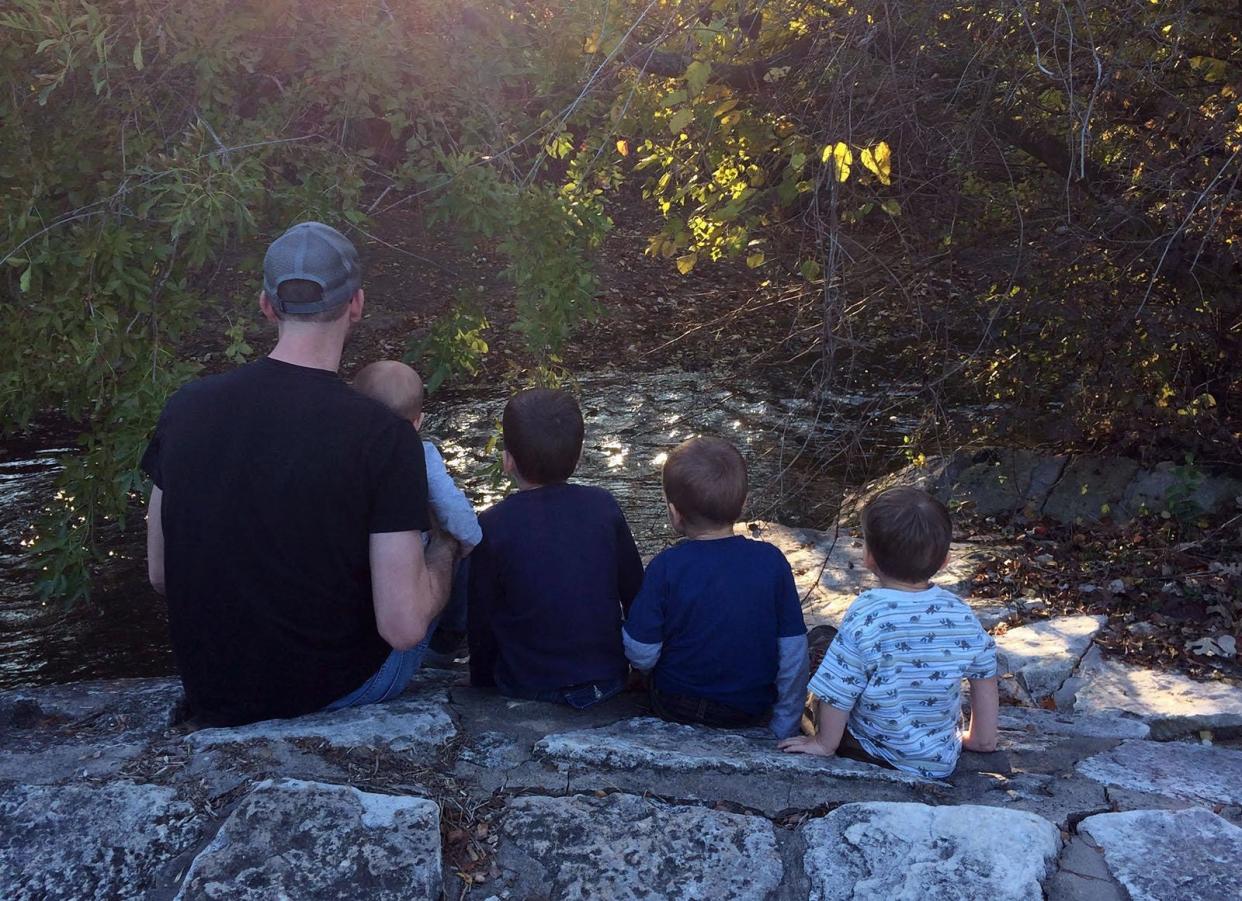Daddy Days: Birding for boys

Both my parents and my in-laws are into birding. They keep life lists, enjoy seeing unusual birds in the area on migration, and know the various markings and subtle color differences that distinguish the male, female and juvenile birds.
An important part of birding is also being able to identify the song or call of different birds. Especially if you can’t see the bird clearly or are trying to decide between two birds, identifying the bird call can make it official.
I haven’t gotten much into birding myself, but I appreciate the skill it takes. Also, I can relate. It hasn’t been intentional, but I’ve developed a keen ear for audibly identifying the various calls and cries the boys make, just like an experienced birder would.
Here's a sample of some of the more common boy calls and cries.
The injustice cry. This loud cry is often tinged with a palpable hue of victimhood. When a toy is swiped by a sibling, this call follows quickly on the heels of the crime. My sister gets credit for the perfect name for this all-too-frequent cry, but anyone with multiple kids knows it.
The pain cry. It can be tough with certain juveniles to distinguish a true pain cry from a manufactured one. The involuntary shriekyness emitted when a child slams their hand in a door is not always distinct from the voluntary shrillness emitted to garner attention on a superficially scraped knee. However, there’s an urgency and uncontrollableness to the pain cry that, in tandem with knowing the personality of the cryer, will help divide the true pain cry from the fake.
The sick cry is one of the few quiet cries but also one of the easiest to recognize. Context matters in birding (location, time of year, proximity to water, etc.) and it’s no different with cry identification. Sickness so often is accompanied by other symptoms that the whimpering cry may get overlooked but it’s a whole different species of cry. While still quieter than most, the agitated stomach pain cry is one you don’t want to ignore. It portends messy things and may be the only warning young kids give before cleanup efforts are called for.
The woke-up-by-accident cry is like the mockingbird of the kid cry world. It mimics many other cries and can be loud and sudden or soft and whimpering. It’s easy to distinguish however because the child will have just woken up from sleep and (hopefully) the cry abruptly stops when the kid fully wakes up or conks back out if it’s the middle of the night.
The scare cry comes in two forms. The immediate scream with a burst into tears from a sudden fright. Or, the quiet turn and cry into mama's leg after something happens and the kid doesn’t know how to process it. The former is often seen when an older brother, uncle or jump-scare scene in a movie scares a kid; the latter when meeting strangers, publicly embarrassed, and in overwhelming moments a kid finds frightening.
The silent cry. Yes, it’s a thing. Continuing our analogy, the silent cry is to the kid cry world what the ostrich is to the bird world. The ostrich doesn’t fly, so is it a bird? The silent cry emits no sound, so is it a cry? In both cases, yes.
It’s almost always observed in young kids, and typically occurs when they are hurt and/or very scared. As the precursor to a pain cry it’s a reliable indicator that it’s a legitimate pain cry. When the 6-year-old fell off a playground slide and smacked his eye on a metal ladder rung, the silent cry, where he was clearly crying but with no sound for several seconds, preceded the very loud pain cry that followed. It was a real pain cry.
There’s an app that helps identify bird calls and it probably won’t be long until there’s something like that for babies and kids, too. I mean, if parents can tell the difference why couldn’t a machine be taught to distinguish the various cries? (Outsourcing parents' interpretation of their children’s communication to a computer, what could possibly go wrong?)
But until then you’ll just have to rely on your own experience. And reliable, rigorously scientific columns like this one.
Harris and his wife live in Pflugerville with their six sons. Please email comments or suggestions for future columns to thoughtsforcaleb@gmail.com.

This article originally appeared on Austin American-Statesman: Daddy Days: Birding for boys

